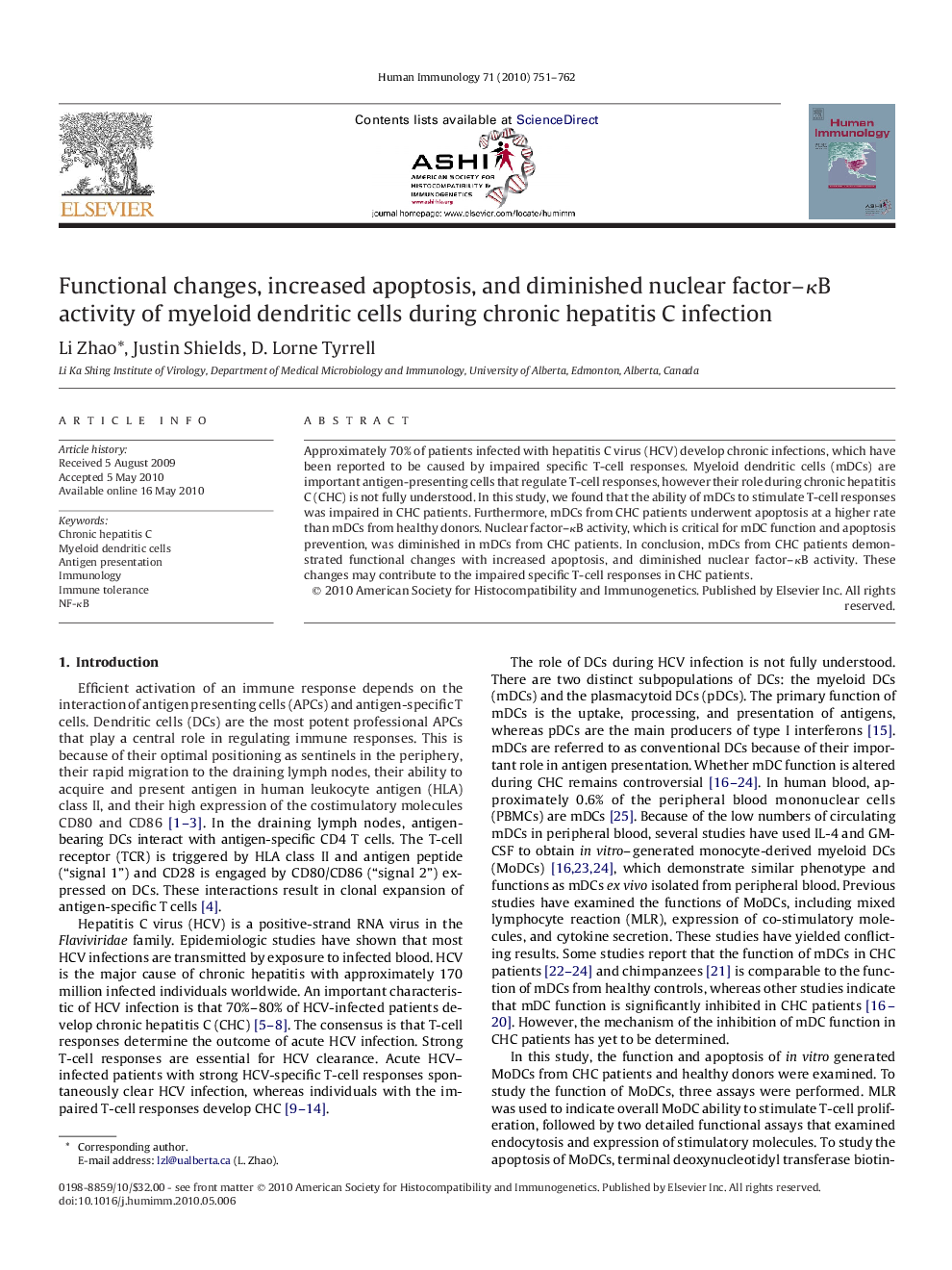| Article ID | Journal | Published Year | Pages | File Type |
|---|---|---|---|---|
| 3350775 | Human Immunology | 2010 | 12 Pages |
Abstract
Approximately 70% of patients infected with hepatitis C virus (HCV) develop chronic infections, which have been reported to be caused by impaired specific T-cell responses. Myeloid dendritic cells (mDCs) are important antigen-presenting cells that regulate T-cell responses, however their role during chronic hepatitis C (CHC) is not fully understood. In this study, we found that the ability of mDCs to stimulate T-cell responses was impaired in CHC patients. Furthermore, mDCs from CHC patients underwent apoptosis at a higher rate than mDCs from healthy donors. Nuclear factor-κB activity, which is critical for mDC function and apoptosis prevention, was diminished in mDCs from CHC patients. In conclusion, mDCs from CHC patients demonstrated functional changes with increased apoptosis, and diminished nuclear factor-κB activity. These changes may contribute to the impaired specific T-cell responses in CHC patients.
Keywords
Related Topics
Life Sciences
Immunology and Microbiology
Immunology
Authors
Li Zhao, Justin Shields, D. Lorne Tyrrell,
